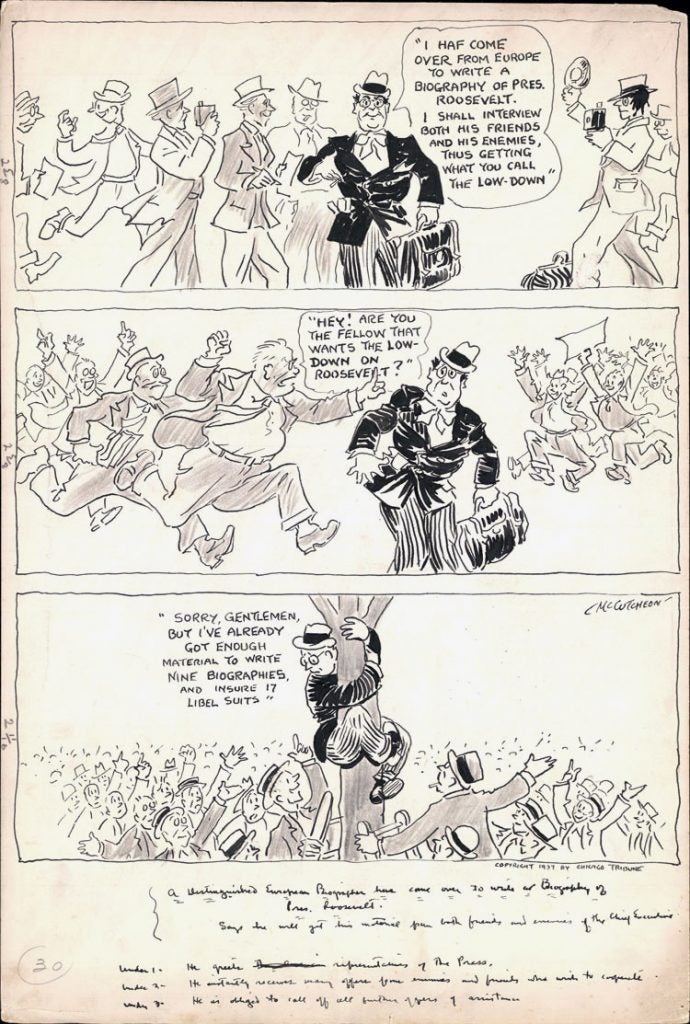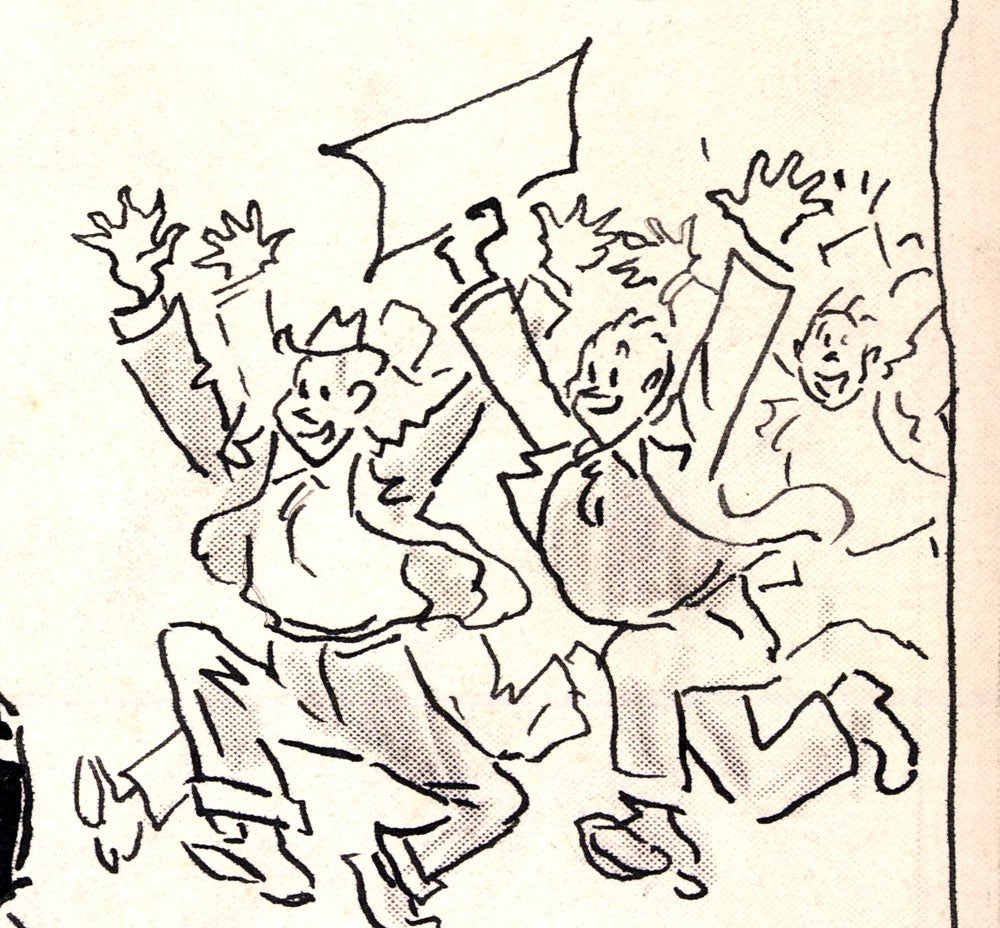
“Biography of a President” (June 16, 1937)
by John Tinney McCutcheon (1870-1949)
14 x 21.5 in., ink on drawing board
Coppola Collection
On the Purdue campus, where he was a student, McCutcheon (class of 1889) is memorialized in a coeducational dormitory, John T. McCutcheon Hall. The lobby displays an original of one of his drawings, a nearly life-size drawing of a young man.
After college, McCutcheon moved to Chicago, Illinois, where he worked at the Chicago Morning News(later: Chicago Record) and then at the Chicago Tribunefrom 1903 until his retirement in 1946. McCutcheon received the Pulitzer Prize for Cartoons in 1932.
On February 5, 1937 (20 years to the day before I was born), President Franklin Roosevelt announces a controversial plan to expand the Supreme Court to as many as 15 judges, allegedly to make it more efficient. Critics immediately charged that Roosevelt was trying to “pack” the court and thus neutralize Supreme Court justices hostile to his New Deal.
During the previous two years, the high court had struck down several key pieces of New Deal legislation on the grounds that the proposed laws delegated an unconstitutional amount of authority to the executive branch and the federal government. The February 1937 plan was to provide retirement at full pay for all members of the court over 70. If a justice refused to retire, an “assistant” with full voting rights was to be appointed, thus ensuring Roosevelt a liberal majority. Most Republicans and many Democrats in Congress opposed the so-called “court-packing” plan.
The Senate buried FDR’s judicial reform proposal in committee. The Senate Judiciary Committee’s report, released on June 14, 1937, denounced the measure as a “needless, futile and utterly dangerous abandonment of constitutional principle.”
The majority opinion acknowledged that the national economy had grown to such a degree that federal regulation and control was now warranted. Roosevelt’s reorganization plan was thus unnecessary, and in July the Senate struck it down by a vote of 70 to 22.
The margin notes:
Under 1: He greets representatives of the Press.
Under 2: He instantly receives many offers from enemies and friends who wish to cooperate.
Under 3: He is obliged to call off all further offers of assistance.


